Identifying transit driver preferences for work shift structures: econometric analysis
Clara Suh
Menghan Li
Shenhao Wang
Yafei Han
Estimating a rail passenger trip origin-destination matrix using automatic data collection systems
Automatic data collection (ADC) systems are becoming increasingly common in transit systems throughout the world. Although these ADC systems are often designed to support specific fairly narrow functions, the resulting data can have wide-ranging application, well beyond their design purpose. This article illustrates the potential that ADC systems can provide transit agencies with new rich data sources at low marginal cost, as well as the critical gap between what ADC systems directly offer and what is needed in practice in transit agencies. To close this gap requires data processing and analysis methods with support of technologies such as database management systems (DBMS) and geographic information systems (GIS). This research presents a case study of the automatic fare collection (AFC) system of the Chicago Transit Authority (CTA) rail system and develops a method for inferring rail passenger trip origin-destination (OD) matrices from an origin-only AFC system to replace expensive passenger OD surveys. A software tool is developed to facilitate the method implementation and the results of the application in CTA are reported.
Private sector participation in urban transport infrastructure provision
Flexible long range planning using low cost information
Contemporary transport planning requires a flexible modelling approach which can be used to monitor the implementation of a long term plan checking regularly its short term performance with easily available data; the original model is periodically updated using low cost information and this allows the evaluation of the changes to the plan which may be required. Such an approach requires models suited to regular updating and to the use of data from different sources. Models to update trip matrices from traffic counts have been available for some time; however, the estimation and/or updating of other model stages with low cost data has escaped analytical treatment. The paper discusses this idea and formulates the updating problem for an example involving a joint destination/mode choice model under various assumptions about the nature of the available data. Analytical solutions are proposed as well as some general conclusions.
Transport metabolism, social diversity and equity: the case of São Paulo, Brazil
The movement of people in space implies the consumption of resources such as time, space, money and energy, as well as the production of negative externalities such as accidents, pollution and congestion. Some of these effects have been analyzed on an aggregate level by comparing regions in the world, a set of selected cities and different geographical areas in a particular city. The analysis of data on a more disaggregate level that considers the differences in the cause and continuance of negative transport externalities among social classes and groups living in a particular city in the developing world is rare.
This paper uses the São Paulo Metropolitan Region (SPMR) 1997 origin–destination (OD) survey to investigate such phenomenon by taking advantage of the fact that data are divided according to six levels of household income. Results refer to mobility patterns in workable days.
The main conclusions are that although people at the lowest income level spend a high share of their income on transport, they have a very low overall mobility and contribute almost nothing to transport externalities. At the other extreme, the two highest income groups that use cars intensively invest much more time, space and money to travel around and so contribute to transport externalities 8.4–15.2 times more than the lowest income group. Such large differences challenge current transport policies in developing countries and call both for a reassessment of assumptions and principles as well as for opposition to the propagation of myths that have sustained such inequitable policies.
Urban Transport, Environment and Equity: The Case for Developing Countries
Urban transport in Australia: has it reached breaking point?
The future of exclusive busways: the Brazilian experience
This paper examines the operation of urban bus transport systems based upon exclusive bus roadways (busways) in three cities in Brazil. The historic, economic, political, regulatory and operating context for these services is discussed. The strengths and weaknesses of busway systems in Curitiba, Porto Allegre and So Paulo are compared, with particular reference to the operating capacity of the busways. The paper concludes with an assessment of the importance of operations techniques, infrastructure development, land use planning, political stability and regulation to the success or failure of these systems.
Road safety in Chile: a short term plan
Bus supervision deployment strategies and use of real-time automatic vehicle location for improved bus service reliability
Bus service reliability has long been a top concern for transit agencies and their customers. Improving service reliability, however, has not been easy to accomplish. The use of appropriate recovery times, improved operator training, and better street supervision has produced limited results. Supervision deployment strategies and the use of real-time automatic vehicle location (AVL) information are investigated to improve current supervision practices and enhance bus service reliability. The Chicago (Illinois) Transit Authority’s real-time AVL pilot project for Route 20 Madison is the case study for evaluation of the effectiveness of real-time AVL to improve reliability. A simulation model of the route was developed on the basis of archived AVL data and was used to predict the effects on service reliability when real-time AVL information is used in bus supervision. A week-long experiment was carried out both to verify the model and to address the feasibility and scalability of the system. The main conclusion is that real-time AVL does indeed have great potential to improve service reliability. Service restoration strategies previously impossible to execute are now feasible because of this new information stream. However, many obstacles remain to networkwide implementation, including the supervision communications structure and manpower deployment questions. The flood of information into a central control center must also be addressed. Automation techniques and exception-based reporting are strategies to deal with the problem of information overload.
MicroGUTS: un juego de simulación para planificadores de transporte en ambiente microcomputacional
Transantiago: the fall and rise of a radical public transport intervention
The potential impact of automated data collection systems on urban public transport planning
Involving stakeholders in evaluating transport pricing
The intermittent bus lane signals setting within an area
Intermittent Bus Lane (IBL) used for bus priority is a lane in which the status of a given section changes according to the presence or not of a bus in its spatial domain: when a bus is approaching such a section, the status of that lane is changed to BUS lane, and after the bus moves out of the section, it becomes a normal lane again, open to general traffic. Therefore when bus services are not so frequent, general traffic will not suffer much, and bus priority can still be obtained. This measure can be operating at a single city block, but if all related control parameters along bus lines are considered together, more time gains can be obtained. In this paper, the basic structure and operation of IBL around a single intersection are briefly introduced, then the construction of an objective function and its relationships with the related priority control parameters along one bus line and their simplifications are described. Finally the calculations of the priority control parameters when there are several connected bus lines within an area and some simulation results are discussed.
Effects of the modifiable areal unit problem on the delineation of traffic analysis zones
Transportation analysis is typically thought of as one kind of spatial analysis. A major point of departure in understanding problems in transportation analysis is the recognition that spatial analysis has some limitations associated with the discretization of space. Among them, modifiable areal units and boundary problems are directly or indirectly related to transportation planning and analysis through the design of traffic analysis zones (TAZs). The modifiable boundary and the scale issues should all be given specific attention during the specification of a TAZ because of the effects these factors exert on statistical and mathematical properties of spatial patterns (ie the modifiable areal unit problem—MAUP). The results obtained from the study of spatial data are not independent of the scale, and the aggregation effects are implicit in the choice of zonal boundaries. The delineation of zonal boundaries of TAZs has a direct impact on the reality and accuracy of the results obtained from transportation forecasting models. In this paper the MAUP effects on the TAZ definition and the transportation demand models are measured and analyzed using different grids (in size and in origin location). This analysis was developed by building an application integrated in commercial GIS software and by using a case study (Lisbon Metropolitan Area) to test its implementabiity and performance. The results reveal the conflict between statistical and geographic precision, and their relationship with the loss of information in the traffic assignment step of the transportation planning models.
Hello world!
Welcome to WordPress. This is your first post. Edit or delete it, then start writing!
Impact of COVID-19 on Travel Behaviour and Public Transport Usage

This research consists in a transcontinental analysis of the impacts that have been occurring on urban travel patterns since the arrival of the pandemic.
Electro (public) mobility: What’s the right fit for cities in different contexts?
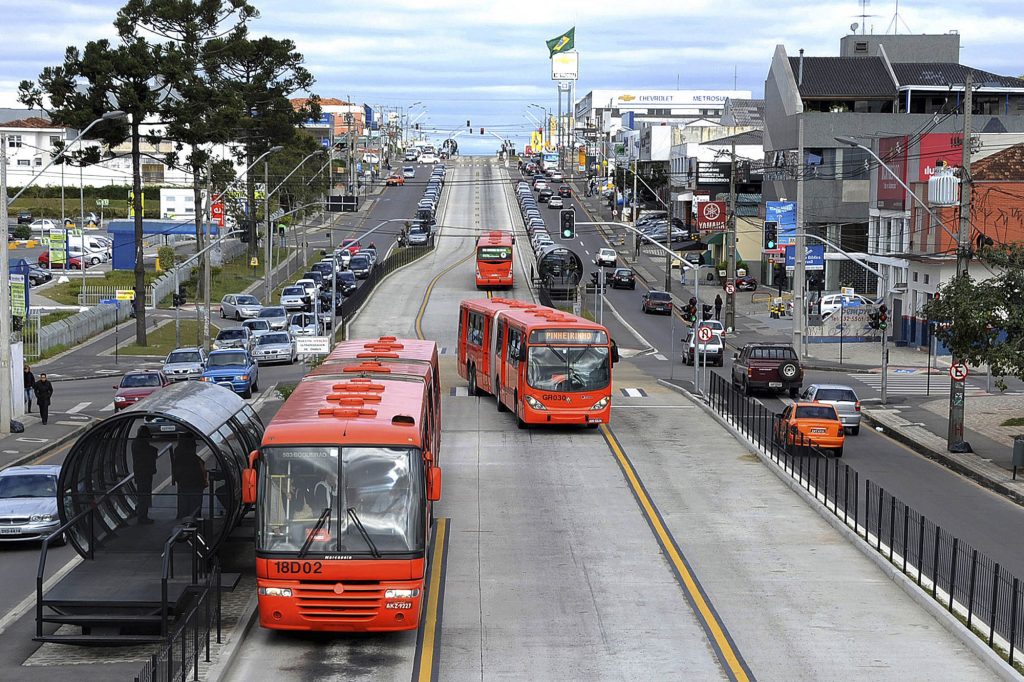
To achieve the net-zero emission target set for 2050 in the Paris Agreement, the transition to zero- emission buses (ZEBs) is urgently needed.
The 2024 STA Ceremony on Wednesday, February 7: Celebrating Tianjin, China and Peshawar, Pakistan
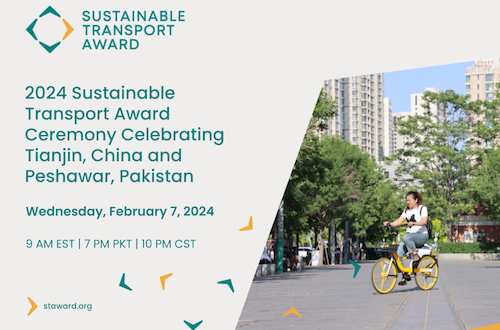
The Sustainable Transport Award (STA) continues to recognize cities that boldly advance sustainable urban mobility solutions and outcomes that respond to the climate crisis, inequalities, and economic disparities in our cities. The STA ceremony is proud to present the 2024 winner Tianjin, China, and the honorable mention Peshawar, Pakistan. Over the past 18 months, each […]
THREDBO 18 Conference. 29 Sep – 3 Oct, 2024
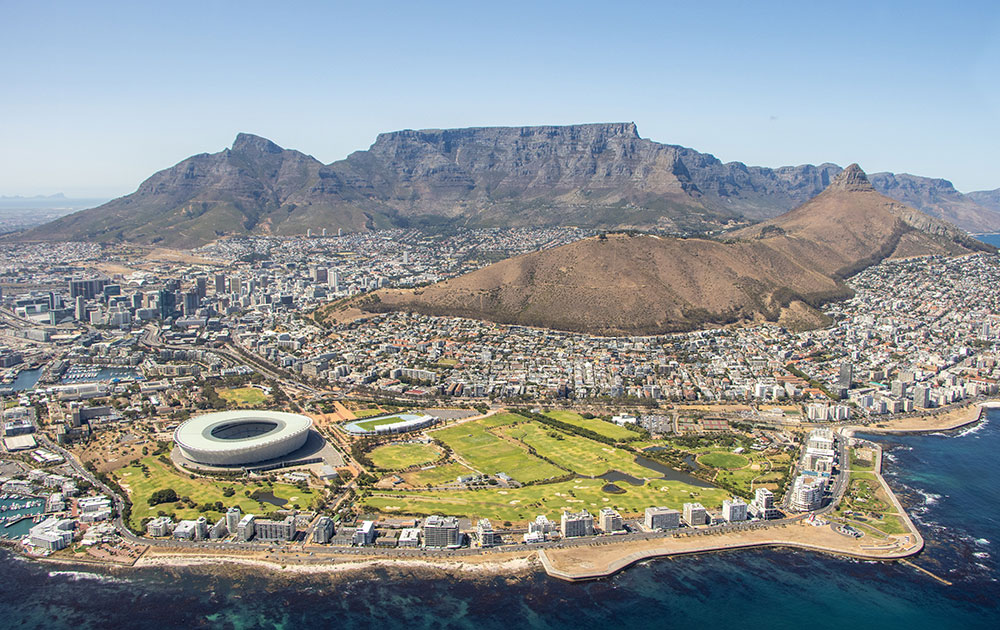
The 18th conference of the International Conference Series on Competition and Ownership in Land Passenger Transport (The Thredbo Series) will be held in Cape Town, South Africa from 29 September to 3 October 2024. The Thredbo conference series has garnered a formidable reputation for being the premier international forum dedicated to the analysis and debate […]
BRT+ General Assembly 2024. Videos and presentations

The recordins of each presentation can be viewed at the links below: 09:30 Registration and welcome coffee 10:00 Welcome. Ricardo Giesen – PUC 10:05 The 2024 BRT Standard: Context, Quality, Resilience. Jacob Mason – ITDP 10:25 NDC implementation and public transport: a review of global climate action for sustainable mobility. Ben Welle – WRI 10:45 Electrifying […]
BRT+ General Assembly 2024. January 10th. 9:30am – 1:30pm

The BRT+ Centre of Excellence invites you to its General Assembly 2024. The General Assembly will be face-to-face and livestream. For registration, use the following link: https://forms.gle/GGnyXvUaGwvRaATx9 Date: January 10th Time: 09:30am – 1:30pm Place: World Resources Institute (WRI) offices, LargeConference Room, 7th floor, 10 G Street NE Suite 800, Washington, District of Columbia The admission is free of charge. Programme (EST time) 09:30 Registration […]
October 4, 9:00 EDT. From Vélib Bikes to Safer Streets – Keynote Address with the City of Paris

ITDP invites you Keynote Address from the City of Paris. The City of Paris is the 2023 Sustainable Transport Award winner. This prestigious award highlights the bold decisions and actions the city has made in the last couple of years in creating safer, greener, pedestrian and cycle-friendly streets and harnessing the power of open spaces. In […]
June 26th. 14:30 EDT. Webinar series. Toward Electric Public Transport. Authorities
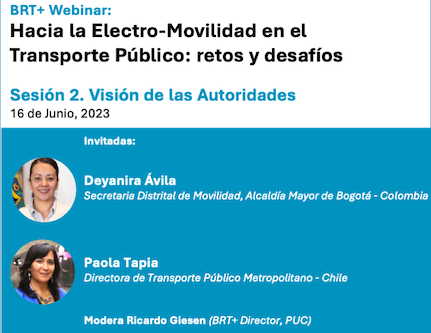
We kindly invite you for a conversation on the challenges faced by electro public mobility. On June 16th we will have our first discussion session. note: this webinar will spoken in Spanish. Register on: https://us02web.zoom.us/meeting/register/tZEkdO-prDItEtdThPGQeD3rXYPCWyQd1sdR
On April 19th 2023, at Government House in Sydney, BRT+ researcher David Hensher was invested with the Order of Australia
[From: Institute of Transport and Logistics Studies] “We are honoured to be able to share with you the magnificent news that Professor David Hensher (PhD, FASSA), the Founding Director of ITLS and a major player in transport, logistics and supply chain management over many years, has been recognised as a Member (AM) of the Order of […]
May 3, 8:00 EDT. Webinar: Bhubaneswar – How Inclusive Processes Create Better Transport Systems for All
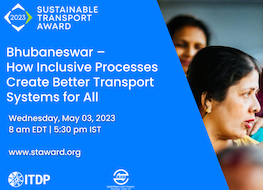
ITDP invistes you to the first event in the 2023 STA Series celebrating the accomplishments of honorable mention Bhubaneswar, India. The City of Bhubaneswar, the 2023 Sustainable Transport Award Honorable Mention, is a major mover in green and equitable urban mobility since it opened the Mo Bus city bus service and modernized the first and last mile e-rickshaw […]
Postdoctoral Research Position in BRT+ Centre of Excellence
The Department of Transport Engineering and Logistics (DTEL) at the Pontificia Universidad Católica de Chile, host of the BRT+ Centre of Excellence (www.brt.cl) is currently looking for a post doctorate or experienced researcher to join our research. We have a number of ongoing projects on different Public Transport issues in which the successful applicant […]
April 28th. 9:00 EDT. Webinar series. Toward Electric Public Transport. Operators
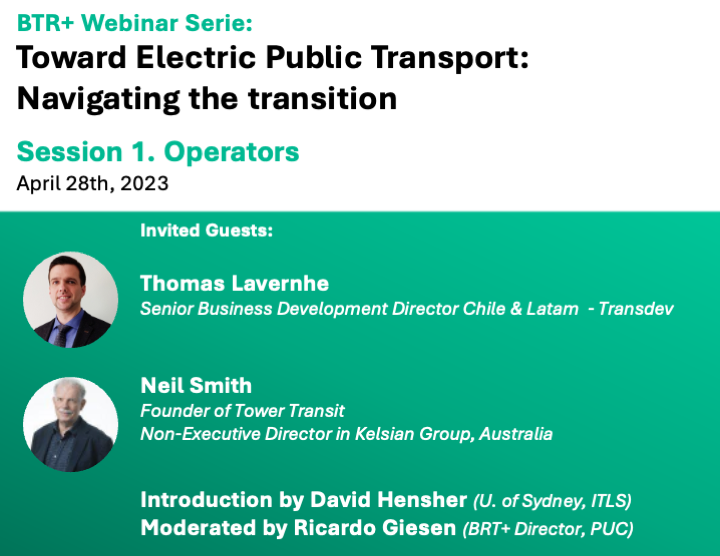
We kindly invite you for a conversation on the challenges faced by electro public mobility. On April 28th we will have our first discussion session. Register on: https://us02web.zoom.us/meeting/register/tZUrf-uqqTgiGNdksM1Zvz6VSq6Nfd_HkepM
Applications for the 2024 Sustainable Transport Award! Nominate your city by March 31, 2023
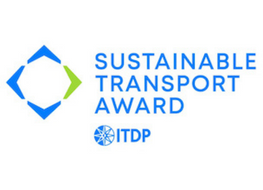
Each year, ITDP and the Sustainable Transport Award Committee select a city that has implemented innovative sustainable transportation projects in the preceding year. These strategies improve mobility for all residents, reduce transportation greenhouse and air pollution emissions, and improve safety and access for cyclists and pedestrians. The winning city and honorable mentions are celebrated at […]
BRT+ researcher David Hensher was awarded Member of the Order of Australia
[From: Institute of Transport and Logistics Studies] «We are honoured to be able to share with you the magnificent news that Professor David Hensher (PhD, FASSA), the Founding Director of ITLS and a major player in transport, logistics and supply chain management over many years, has been recognised as a Member (AM) of the Order of […]
News: Paris, France Receives the 2023 ITDP Sustainable Transport Award
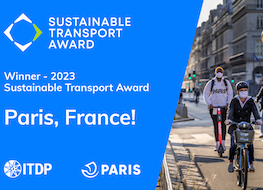
[From www.staward.org] New York (January 2023) — The Institute for Transportation and Development Policy (ITDP) and the Sustainable Transport Award Committee are proud to announce Paris, France as the winner of the 2023 Sustainable Transport Award (STA). Paris will receive the award in a live broadcast ceremony held on 8 February 2023, and the City […]
Invitation: Mobilize Series. Connecting Communities Through Equitable Mobility Planning in Bogotá, Jalisco, and Peshawar. November 2nd | 10:00am EST
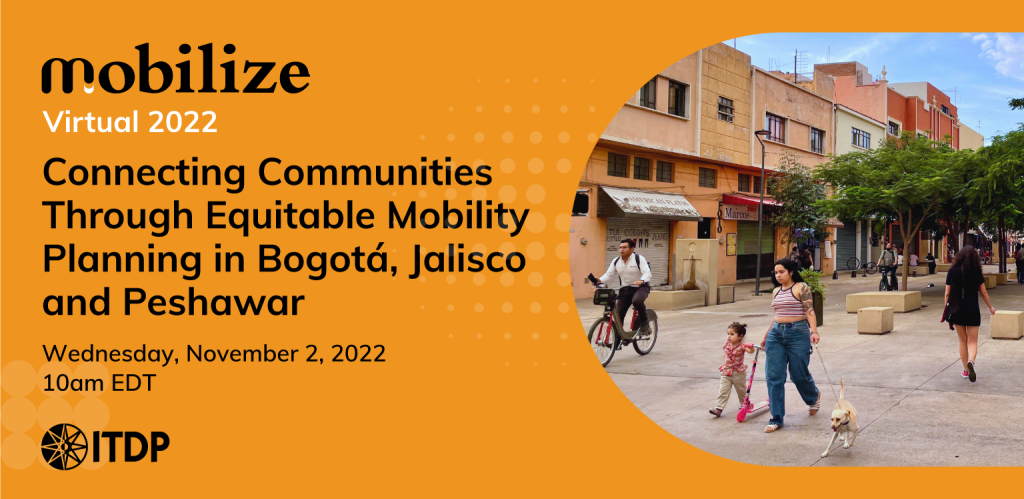
Date: November 2, 2022 Time: 9 AM COT, 10 AM EDT/ rebroadcast November 3rd at 3 PM EDT Description: In recent years, inclusion and equitable access have become priorities in informing the design of public spaces and public transport services. Transportation planning strategies are beginning to address the diverse roles and mobility needs of […]
Thredbo 17 Conference Sydney, Australia. 4 to 8th September, 2022.
The postponed 17th conference of the International Conference Series on Competition and Ownership in Land Passenger Transport (The Thredbo Series) will be held in Sydney, Australia from 4 to 8th September, 2022. The Thredbo conference series has garnered a formidable reputation for being the premier international forum dedicated to the analysis and debate of competition […]
BRT+ General Assembly 2022 Videos
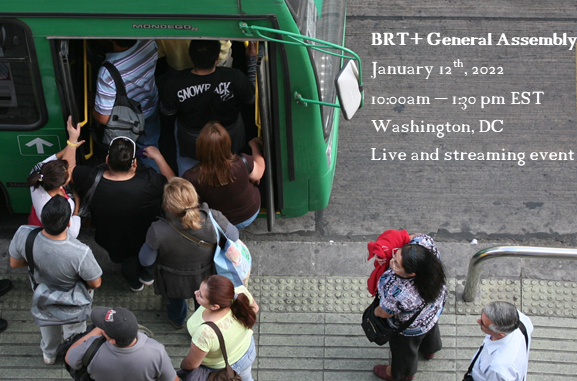
Hi everybody, we have just uploaded the recordings of our latest General Assembly to out Youtube Channel. You can check them on following links: Challenges for Public Transport on Achieving the COP26 Targets. Part 1 – Part 2. Jim Aloisi (MIT), Cristina Albuquerque (WRI), Nour El Deeb(ITDP). Commented by Chris Zegras (MIT) World Resources Institute Global Electric […]
Priority infrastructure for minibus-taxis: An analytical model of potential benefits and impacts
http://dx.doi.org/10.17159/2309-8775/2021/v63n4a6 Many governments in the global south are grappling with challenges of improving the quality of informal transport, and an inability to pay for service improvements. This paper asks the question whether efficiency benefits might be gained through strategic implementation of once-off infrastructure interventions providing priority to informal vehicles at intersections. We note that informal […]
Mixing the formal with the informal in shared right-of-way systems: A simulation-based case study in Tshwane, South Africa
https://doi.org/10.1016/j.cstp.2021.11.012 The study uses a microsimulation-based approach to examine the implications of mixing informal and formal operations in shared public transport lanes, based on a real-world Bus Rapid Transit service. The question is relevant to cities in the global south trying to transition towards upgrading informal paratransit services by investing in dedicated infrastructure, yet do not have […]
Juan Carlos Muñoz, BRT+ researcher and former director appointed Ministry of Transport and Telecommunications in Chile

Juan Carlos Muñoz has been appointed Ministry of Transport and Telecommunications for the upcoming government in Chile, whose governing period will begin on March 2022. The Ministry of Transport and Telecommunications is the highest authority in Chile in its area and its decisions have deep and long term impacts in investments and mobility alternatives in both, […]
BRT+ General Assembly 2022

The BRT+ Centre of Excellence invites you to its General Assembly. This year the General Assembly will be face-to-face and livestream. For registration, use the following link: https://www.eventbrite.com/e/brt-2022-general-assembly-tickets-222405700437 PROGRAMME (EST time) 10:00 Welcome. Ricardo Giesen 10:05 Challenges for Public Transport on Achieving the COP26 Targets. Jim Aloisi (MIT), Cristina Albuquerque (WRI), Nour El Deeb(ITDP). Commented by Chris Zegras (MIT) 10:40 World Resources Institute Global […]
Technology choices in public transport planning: Aclassification framework
Estimation and prediction of dynamic matrix travel on a public transport corridor using historical data and real-time information
Vehicle routing problem with steep roads
Aces technologies and public transport operations and control
Impact of COVID-19 on the number of days working from home and commuting travel: A cross-cultural comparison between Australia, South America and South Africa
Designing integrated urban delivery systems using public transport
Impact of COVID-19 on travel
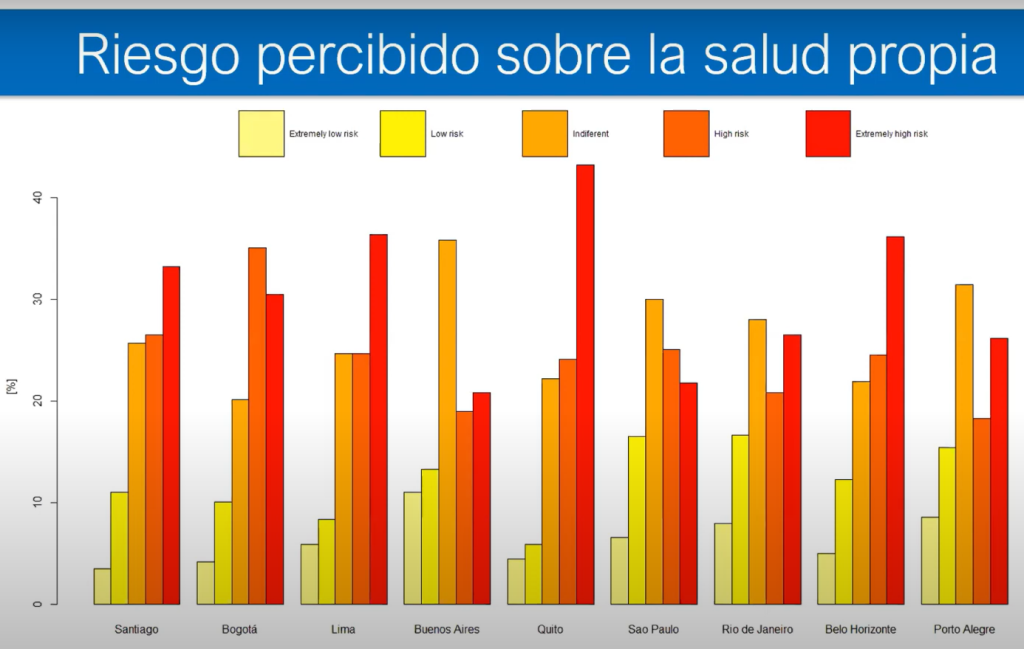
Jose Agustin Vallejo-Borda (PhD in Transportation, Universidad de Los Andes, Colombia) started working at BRT + COE in 2020, with the aim of addressing the impact of COVID on travel. José has been familiarized with the Centre previously while developing his doctorate studies, as well as through his participation in transport conferences, and had […]







